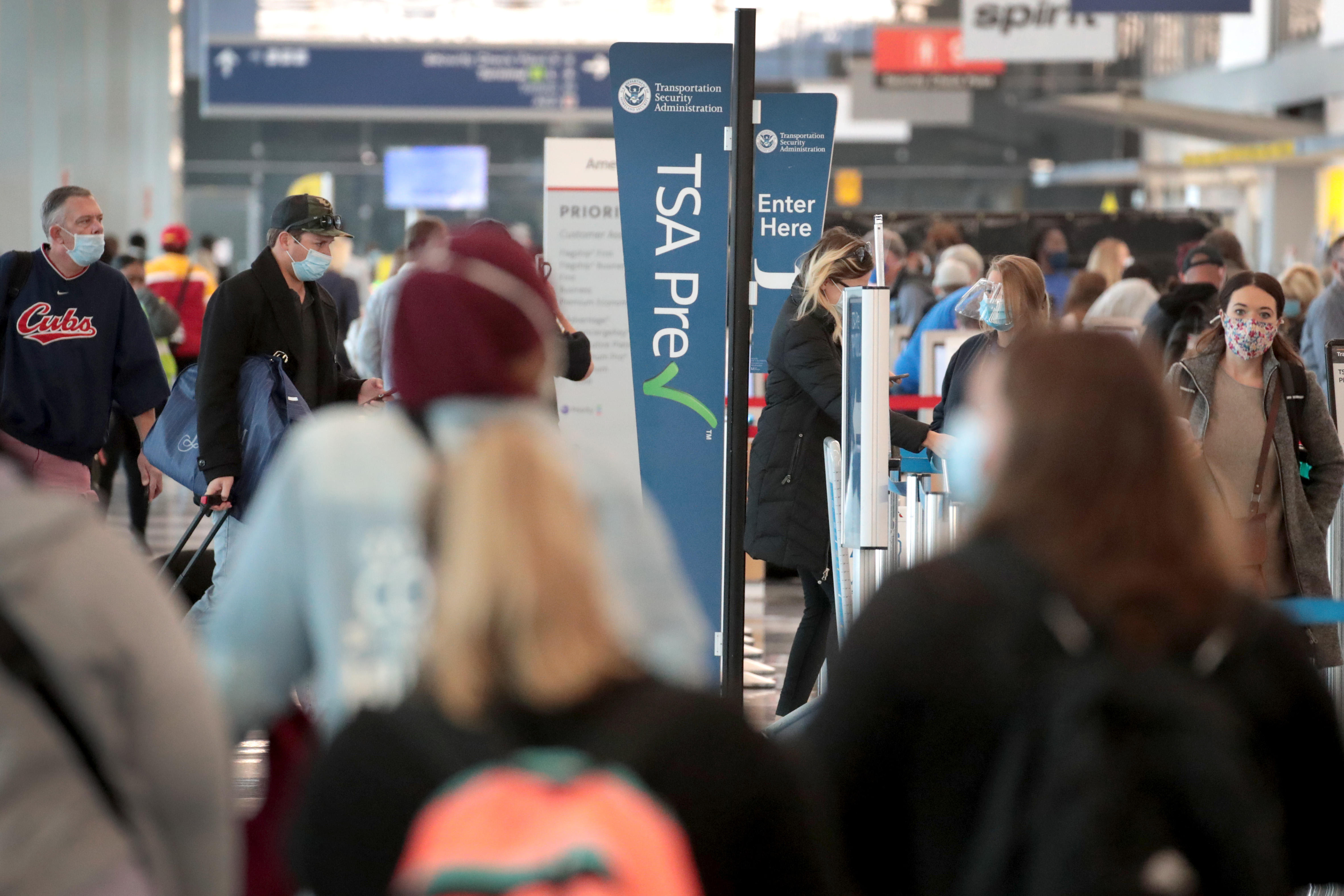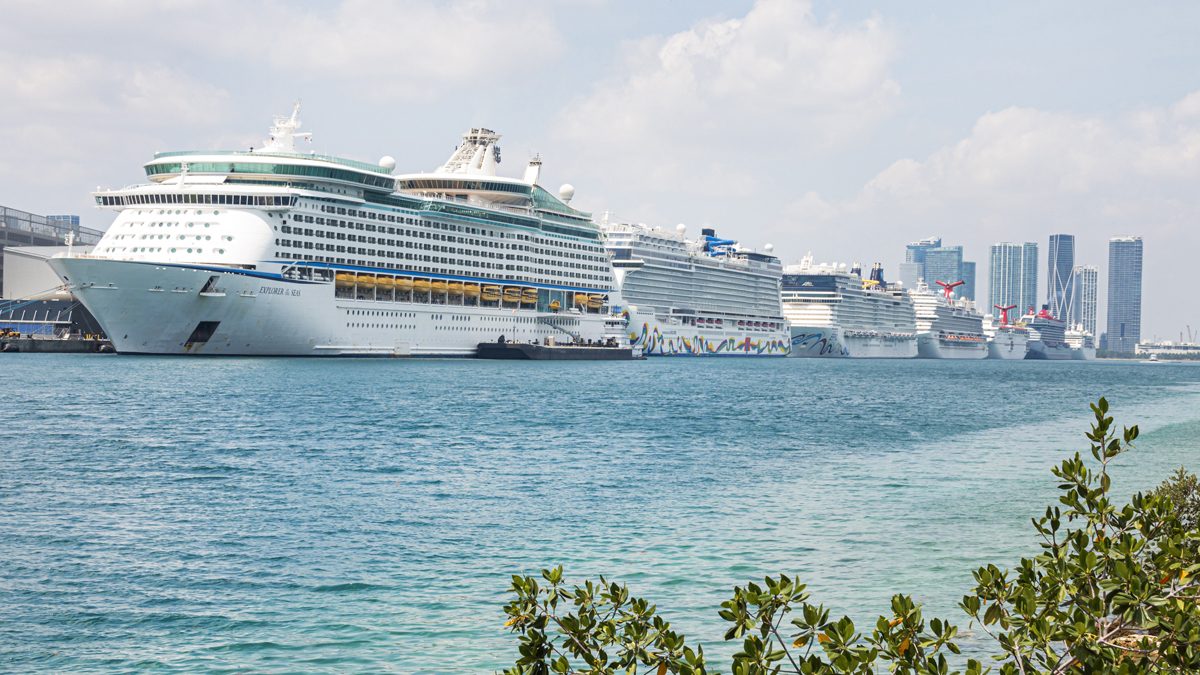The U.S. has recorded more than 260,000 deaths in the coronavirus pandemic, a tally by NBC News reported Tuesday.
Over the weekend, the United States topped 12 million cases of COVID-19, according to NBC News' tally, as the third wave's uncontrolled spread led the Centers for Disease Control and Prevention to renew calls for Americans not to travel for Thanksgiving.
In a bit of promising news, AstraZeneca said Monday that late-stage trials showed its COVID-19 vaccine is highly effective, buoying the prospects of a relatively cheap, easy-to-store product that may become the vaccine of choice for the developing world. The vaccine is one of several promising vaccines, including one from Moderna and one from Pfizer and BioNTech, which could be available to the public as soon as Dec. 12.
In total, 47 states, plus Washington D.C., Puerto Rico and the U.S. Virgin Islands, and are experiencing a percentage increase in cases from over the past 14 days. North and South Dakota and Hawaii are the only states where cases have plateaued.
HHS Sec. Azar Says COVID-19 Vaccine Could Be Distributed by End of Year
Health and Human Services Secretary Alex Azar said Tuesday that within 24 hours after the Food and Drug Administration approves a vaccine, doses will be shipped to states to be distributed.
The FDA's advisory committee is scheduled to review Pfizer's application for emergency approval of its COVID-19 vaccine on Dec. 10.
“If all goes well, we could begin distributing vaccines soon after,” Azar said.
He also confirmed that, with the General Services Administration ascertaining that President-elect Joe Biden was the apparent winner of the election, the Biden transition team received an official briefing last night from Rear Admiral Erica Schwartz on Operation Warp Speed.
"We are immediately getting them all of the pre-prepared transition materials," Azar said, vowing that the transition process will be "professional, cooperative and collaborative."
International Flyers May Soon Need to Get Virus Vaccinations
Encouraging news about vaccine development has given airlines and nations hope they may soon be able to revive suspended flight routes and dust off lucrative tourism plans. But countries in Asia and the Pacific, in particular, are determined not to let their hard-won gains against the virus evaporate.
In Australia, the boss of Qantas, the country's largest airline, said that once a virus vaccine becomes widely available, his carrier will likely require passengers use it before they can travel abroad or land in Australia.
Qantas Chief Executive Alan Joyce said he's been talking to his counterparts at other airlines around the world about the possibility of a “vaccination passport” for international travelers.
South Korea's Korea Air and Air New Zealand are considering similar measures.
Australia, South Korea and New Zealand have all managed to minimize the spread of the virus, with some 900 deaths, 500 deaths and 25 coronavirus-related deaths respectively. They are seen internationally as success stories, and a big part of their containment effort has focused on keeping infectious people out.
COVID Field Hospital Reopening in NYC
New restrictions begin Wednesday for parts of New York City as COVID-19 patients overwhelm hospitals in one of its boroughs, prompting Gov. Andrew Cuomo to reopen an emergency field hospital as health officials anticipate another surge in the states rising infection rate, NBC New York reports.
The area of New York City that has been a particular concern for Cuomo is Staten Island, where large sections of the borough were already a yellow zone. Staten Island has averaged 209 new cases of COVID-19 per day over the past seven days — up 86% from two weeks ago.
"Staten Island is a serious problem. Staten Island is also a problem in terms of overburdening hospitals, and we're running into a hospital capacity issue on Staten Island that we have to be dealing with over these next few days," Cuomo said.
At the request of hospitals on Staten Island, Cuomo announced on Monday the reopening of an emergency facility for COVID patients at South Beach. Roughly 200 patients received treatment at the facility in the spring, state officials said, which is located across from Staten Island University Hospital. The field hospital is expected to open up to COVID patients by Tuesday or Wednesday this week.
New ‘Safer-At-Home' Order on Horizon for LA County as COVID-19 Cases Spike Again
One day after announcing plans to eliminate in person restaurant dining for three weeks due to a COVID-19 surge, Los Angeles County health officials Monday announced a record-high daily number of cases that is expected to trigger a more sweeping "safer-at-home" order, NBC Los Angeles reports.
Exactly what that order will look like was unclear, pending a discussion expected Tuesday between health officials and the county Board of Supervisors. Health officials said last week the order would generally allow only essential and emergency workers and those securing essential services to leave their homes. But county Public Health Director Barbara Ferrer said Tuesday the specifics still need to be ironed out with the board.
Ferrer on Monday announced 6,124 new confirmed COVID-19 cases, by far the highest single-day number reported during the pandemic. Although about 1,500 of those cases are the result of a backlog in reporting from Sunday, the number was enough to put the county over the 4,500-case daily average to trigger a new "targeted" Safer At Home order, Ferrer said.
Are Dining Tents a Safe Way to Eat Out During the Pandemic?
Health experts say outdoor dining tents are generally safer than dining inside, but caution that they’re not all equal.
Many restaurants are erecting individual tents, igloos and other outdoor structures that let people who are dining together avoid being indoors, where the coronavirus spreads more easily.
Experts say the structures should be well-ventilated. A tent with four walls and a roof, for example, might not have better ventilation than an indoor dining room.
“The more airflow through the structure, the better it is,” says Dr. Isaac Weisfuse, a public health expert at Cornell University.
Between parties, tents should be cleaned and left open for at least 20 minutes, says Aubree Gordon, an associate professor at the University of Michigan School of Public Health. She also suggests servers should be able to leave food on a tray outside to minimize contact with diners.



